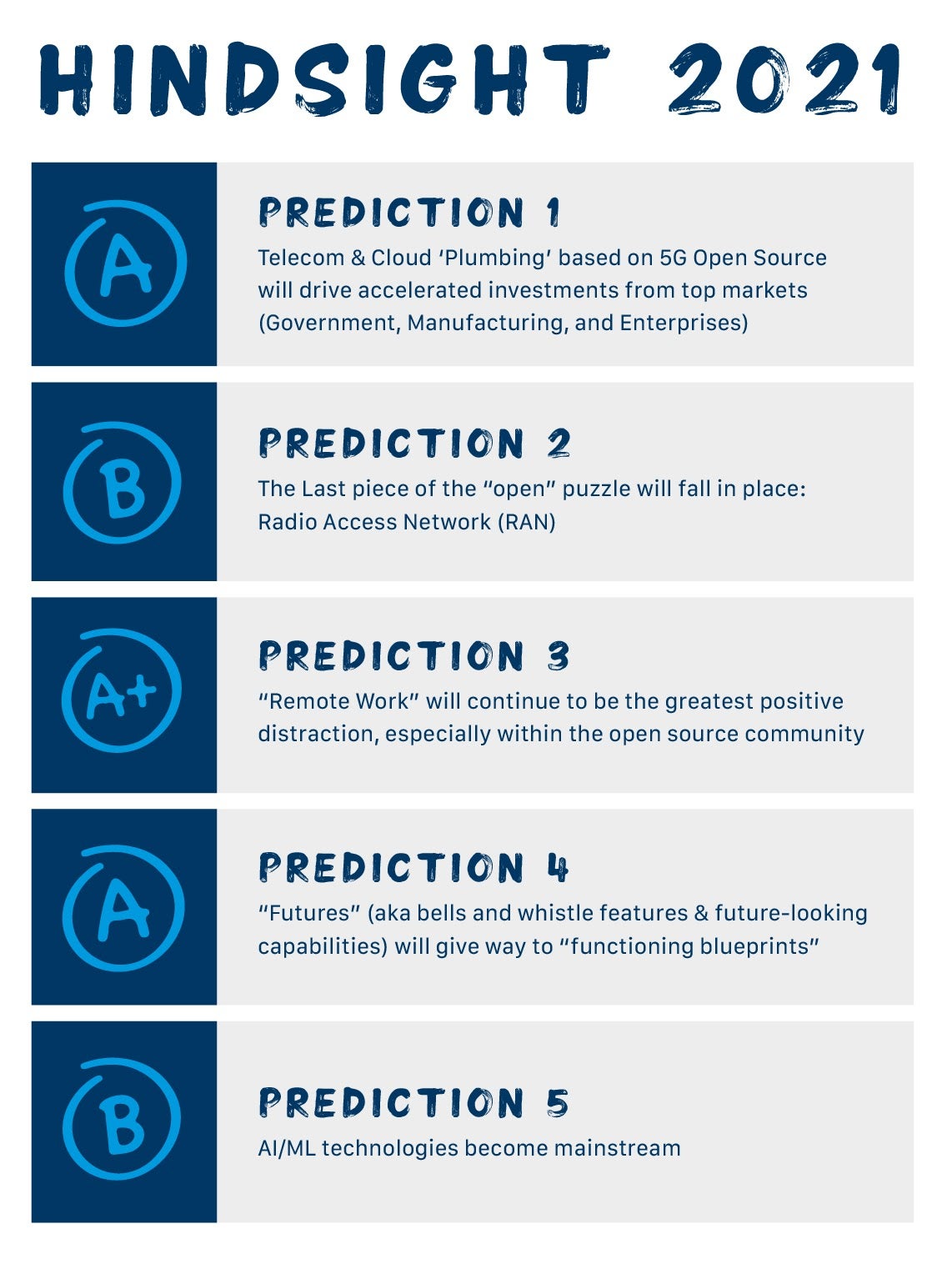In 2021, we continued to double down on our commitment to enact positive change for underrepresented and marginalized people by introducing new and progressing existing programs for inclusivity, racial justice, and diversity.
The LF is Committed to Building Diverse and Inclusive Communities
Unique ideas and contributions — that originate from a diverse community, from all walks of life, cultures, countries, and skin colors — are vital for building sustainable and healthy open source communities. Individuals from diverse backgrounds inject new and innovative ideas to advance an inclusive and welcoming ecosystem for all.
Creating diverse communities requires effort and commitment. The Linux Foundation is addressing the need to build inclusive and welcoming spaces through various initiatives, including some of those expanded upon below.
LF Research Publishes 2021 Open Source Diversity, Equity, and Inclusion Study
The Linux Foundation has put diversity, equity, and inclusion (DEI) at the top of its inaugural research agenda, and for a good reason. It is the social imperative of our time. New research identifies the state of DEI in open source communities, the challenges and opportunities within them, and draws conclusions around what initiatives are helpful and where we need to do more collectively.
Earlier this year, we engaged member organizations from the Linux Foundation Board to provide financial support for survey translation into ten different languages and enable further qualitative research to be conducted for a richer perspective. LF Research is grateful to AWS, CHAOSS, Comcast, Fujitsu, GitHub, GitLab, Hitachi, Huawei, Intel, NEC, Panasonic, Red Hat, Renesas, and VMware for their support and leadership in this important piece of research.
We are also grateful to the members of our community who participated in the DEI survey. In addition, more than two dozen individuals across the open source community participated in interviews with the research team adding further insight to the survey findings.
The research shows that while a majority of respondents feel welcome in open source, many in underrepresented communities do not. We hope that the data and insights that this project provides will be a catalyst for strengthening existing DEI initiatives and creating new ones.
Download and Read The 2021 Linux Foundation Report on Diversity, Equity, and Inclusion in Open Source
Inclusive Language Efforts Continue
Communities that adopt inclusive language and actions will be able to attract and retain individuals from diverse backgrounds. The Linux kernel community adopted inclusive language in the Linux 5.8 release, showing its commitment to Diversity and Inclusion.
For other projects, the Inclusive Naming Initiative launched at KubeCon North America to standardize inclusive language across the industry. It released a training course, LFC103: Inclusive Strategies for Open Source Communities, to support this.
Software Developer Diversity and Inclusion Project
We are also focusing on Science and Research to Advance Diversity and Inclusion in Software Engineering. Our new Software Developer Diversity and Inclusion (SDDI) project will draw on science and research to deliver resources and best practices in increasing diversity in software engineering.
Open Hardware Diversity Alliance
The Open Hardware Diversity Alliance is a RISC-V incubating project with the mission of bringing together the open hardware community to provide programs, networking opportunities, and learning to encourage participation and support to the professional advancement of women and underrepresented individuals in open source hardware.
Diversity, Equity, and Inclusion Micro-Conference
Creating diverse communities requires effort and commitment to creating inclusive and welcoming spaces. Recognizing that communities that adopt inclusive language and actions attract and retain more individuals from diverse backgrounds, the Linux kernel community adopted inclusive language in the Linux 5.8 release. Understanding if this sort of change has been effective is a topic of active research. The Diversity, Equity, and Inclusion Micro-Conference at Linux Plumbers Conference 2021 took the pulse of the Linux kernel community as it turned 30 this year and discussed some next steps. Experts from the DEI research community shared their perspectives and preliminary research with Linux community members.
A multifaceted discussion on various research topics related to diversity was informative. A few takeaways are:
Diversity spans geography, gender, and language.Inclusive language efforts have to take language barriers into account.Implicit and explicit mentoring efforts help attract developers from diverse backgrounds.Mentoring programs with opportunity to work with experts are successful in attracting developers from diverse backgrounds.
The challenges to work on:
How do we retain new developers?How do we evolve new developers into maintaining code?
LFX Mentorships
As we look back at the year, the LFX Mentorship program will wrap 2021 with 23 new Linux kernel developers, 181 new open source developers across all LFX projects, and 5285 received applications. We started the LFX Mentorship program in 2019 with just three new developers, and we’ve come a long way since then. As we look back at the year, the LFX Mentorship program will wrap 2021 with 23 new Linux kernel developers and 181 new open source developers across all LFX projects, with 5285 applications received.
The LF Mentorship program, with the help from the Event teams, reached out to Historically Black Colleges (HBCUs) and colleges with a larger number of Hispanic students before the Summer session and to all 2021 applicants to get feedback on the programs and platform.
We have had limited success from the first reach out in attracting and selecting applicants, and the second one was successful. Here is what people had to say about what attracted them to our program:
The top two responses tied at 83%:
Ability to work 1:1 with experienced open source contributors.Opportunity to experiment and ability to learn to contribute effectively to current open source projects.
The opportunity to facilitate jobs and internships came in second place with 55%, and paid opportunities came in third place at 49%.
The important takeaways are that the program offers the ability to work with experts and the opportunity to experiment. A few mentioned that the program’s emphasis on support for students and developers who are entirely new to open source is why they applied, aligning with the program’s goals and objectives.
Learn more about LFX Mentorships at https://lfx.linuxfoundation.org/tools/mentorship/
Mentorship + Events
The LFX Mentorship program and the LF Events teams collaborated with 22 experts in the open source communities to provide unstructured self-learning resources under the LF Live Mentorship Series umbrella. The series provides expert knowledge and valuable interactive discussion across various topics related to the Linux Kernel and other OS projects, primarily development. We made these 22 webinars available for free, and we will conclude this year with two more. We thank all our mentors for taking the time to share their knowledge and expertise.
Let’s take a look at how these programs enable new developers to find jobs and career opportunities. You can read the stories of Linux Kernel Mentorship program graduates breaking the open source glass ceiling by Nithya Ruff and Jennifer Cloer.
We are also planning to reach out to all our graduates since the inception of this program in 2019. The goal is to see where their open source journeys took them after graduating, and we will share the results.
The LFX Mentorship and LF Events team collaborated on a Mentee Showcase to connect our graduates with prospective employers from our member companies. In this virtual event, mentees will share their accomplishments with others. There are plenty of open source jobs, and employers are looking for talent. Additionally, this event allows us to thank our mentors who share their knowledge to train new talent. Some of our mentors do this in their spare time without expectations. We are hoping to make this an annual event.
A recent Linux kernel community research confirmed the busy maintainer problem we talked about for a couple of years. Next year, this is one area of focus to add mentorship projects and webinars to provide resources to develop maintainer talent within open source communities.
As we talk about the stats and numbers, let’s not lose sight of the big picture. It’s all about:
Making a difference and empowering people by offering both structured and unstructured learning opportunities. We are paying them to learn and making the resources available for free and accessible to all.Developing new talent and making the new talent available to the Linux ecosystem. Helping build communities to continue developing open source code to keep the Linux ecosystem healthy and sustainable.
Addressing Racial Justice Efforts Through Code
In February of 2021, the Linux Foundation announced it would host seven Call for Code for Racial Justice projects, an initiative driven by IBM and Creator David Clark Cause to urge the global developer ecosystem and open source community to contribute to solutions that can help confront racial inequalities. These include two new cloud-based Solution Starter applications:
Fair Change is a platform to help record, catalog, and access evidence of potentially racially charged incidents to help enable transparency, reeducation, and reform as a matter of public interest and safety. TakeTwo aims to help mitigate bias in digital content, whether overt or subtle, focusing on text across news articles, headlines, web pages, blogs, and even code.
In addition to the two new apps, the Linux Foundation now hosts five evolving open source projects from Call for Code for Racial Justice:
Five Fifths Voter: This web app empowers minorities to exercise their right to vote and helps ensure their voice is heard by determining optimal voting strategies and limiting suppression issues.Legit-Info: Local legislation can significantly impact areas as far as jobs, the environment, and safety. Legit-Info helps individuals understand the legislation that shapes their lives.Incident Accuracy Reporting System: This platform allows witnesses and victims to corroborate evidence or provide additional information from multiple sources against an official police report.Open Sentencing: To help public defenders better serve their clients and make a stronger case, Open Sentencing shows racial bias in data such as demographics.Truth Loop: This app helps communities understand the policies, regulations, and legislation that will most impact them.
The post Addressing Diversity, Equity, and Inclusion in 2021 and Beyond appeared first on Linux Foundation.


